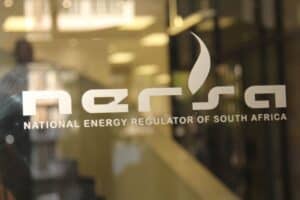South African households are struggling with the worst cost-of-living crisis ever, and paying so much more for electricity will not help.

Although South African consumers have been paying less for fuel since Wednesday, it will not make up for the electricity price increases they have to deal with, especially since the latest National Energy Regulator of South Africa (Nersa) electricity tariff increase announcement that has the country up in arms.
Consumers now pay R1.06 less per litre for 95 unleaded and R1.14 less per litre for 93 unleaded petrol per litre, while diesel is between R1.12 and R1.14 per litre cheaper. This means you now pay R20.73 for a litre of 93 unleaded at the pumps and R21.05 per litre for 95 unleaded, the lowest prices so far in 2024.
This is the fifth consecutive decrease in the price of petrol in as many months and could not be more welcome, Neil Roets, CEO of Debt Rescue, says. “South Africans are desperate for any relief that will enable them to dig their way out of indebtedness and poverty caused by the exorbitant and continual cost of living increases that have all but decimated the state of their finances over the past few years.”
But unfortunately, he says, this small decrease in the petrol price, no matter how welcome, will not make any discernible difference to the state of households’ financial predicament while essentials like the price of electricity continue to be hiked to a point where it is beyond the reach of millions of people nationwide.”
ALSO READ: ‘Taxpayers are paying twice for Eskom’s poor decisions’: Nersa’s R8.1 billion approval criticised
Proposed electricity increases seem like a bad joke
“At this stage, we can all be forgiven for believing that the latest revenue application by Eskom is a very bad joke. Sadly, this joke is on the nation.”
Eskom faces massive backlash against its proposed tariff hikes published by Nersa, revealing the national energy producer’s Multi-Year Price Determination (MYPD) revenue application for the group’s next three financial years.
The power company has applied for hundreds of billions of rands in revenue for these periods, which will translate into massive tariff increases for electricity. The first of these will be a tariff increase for Eskom’s direct customers of a whopping 36.15% from 1 April 2025 to 31 March 2026.
Politicians across all party lines are openly opposing three more years of double-digit price hikes and even the minister of energy and electricity, Kgosientsho Ramokgopa, has called the price hikes ‘a growing crisis’, saying that the government would be looking for a way to mitigate this.
Meanwhile, ordinary South Africans are expected to carry the burden of Eskom’s mismanagement and disregard for the nation’s well-being and economic stability, Roets says.
ALSO READ: Food basket price increases, core foods remain expensive
Electricity prices increased more than 16% over past 16 years
He points out that the price of electricity has increased more than 500% over the past 16 years, far exceeding inflation over that time. “Expecting South Africans to pay for the mistakes made by the national power producer, when the country is experiencing the most severe cost-of-living crisis in history, is simply untenable.
“This looming tariff increase will have dire socio-economic consequences for everyone in the country,” he warns.
South Africa’s residential electricity prices are well above the average tariff in 144 countries and more expensive than in most African countries, according to GlobalPetrolPrices.
Roets points out that there has been little to no relief for South Africans who have been bravely carrying the financial load on behalf of the country for too many years, with millions of households across the country hovering on the brink of financial ruin and 55% or 30.4 million people living below the national upper poverty line.
ALSO READ: How to make the most of the repo rate cut
Repo rate cut was also too little too late
South Africans who waited with bated breath for over three years for some relief in the repo rate, which hit a 15-year high of 8.25% in May 2023 where it remained until September 2024, have since woken up to the reality that the 25 basis points cut the Monetary Policy Committee decided on in September, has made no real dent whatsoever to their monthly budgets.
For example, Roets says, someone who bought a home without a deposit of R1.4 million for a period of 20 years would have been making a R15 172 monthly bond repayment at the 11.75% interest rate.
With the adjusted interest rate of 11.5% his monthly bond repayment would now be R14,930, a saving of R242 per month, which does not even cover the price of a half-tank of petrol, much less a monthly bus ticket, Roets says.
“The nation’s financial crisis is evident in the escalating number of South Africans seeking debt counselling. Even with inflation having slowed down, it is important to note that this does not mean prices are falling but rather, the rate at which prices are increasing has simply decelerated.”






